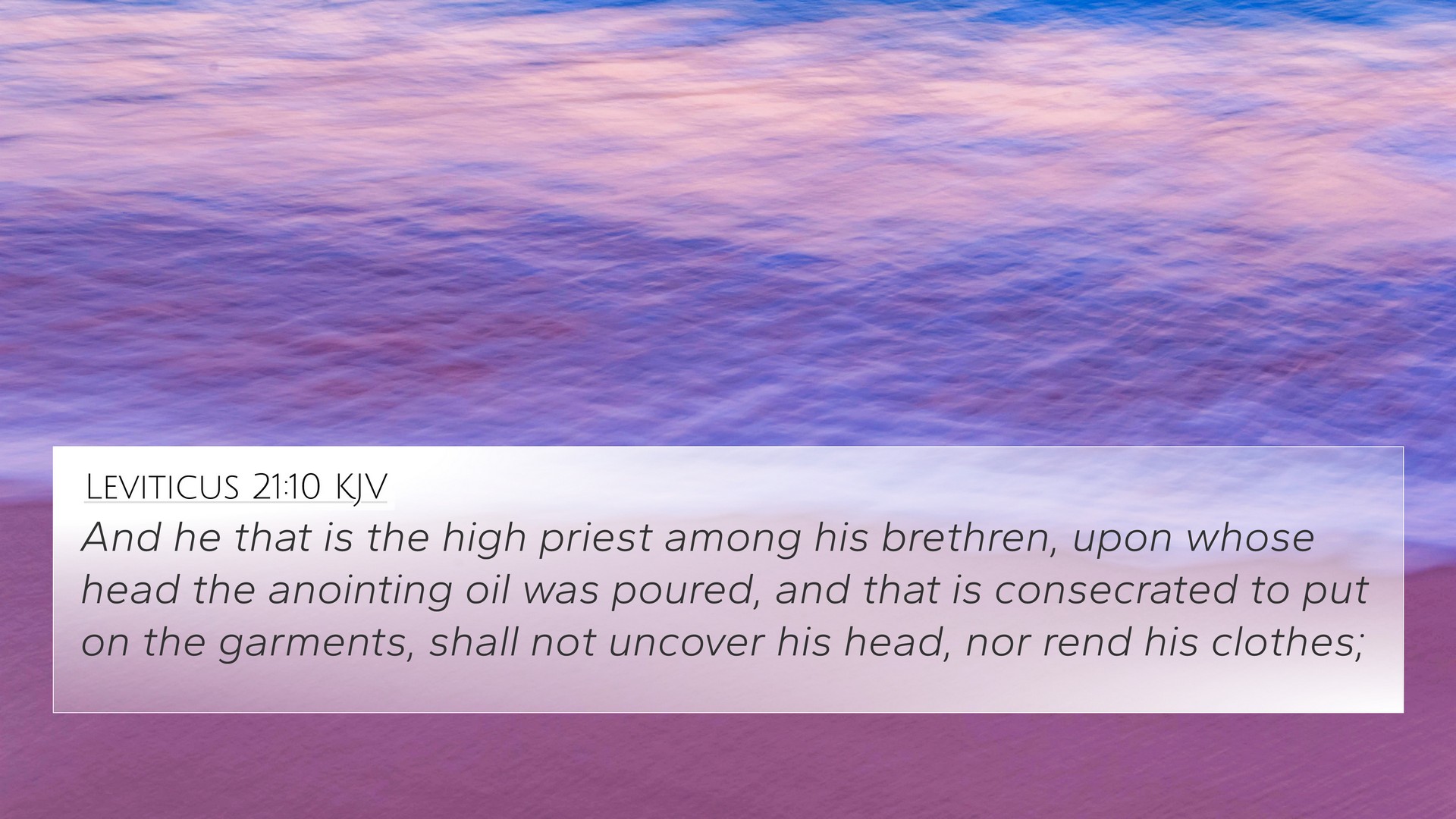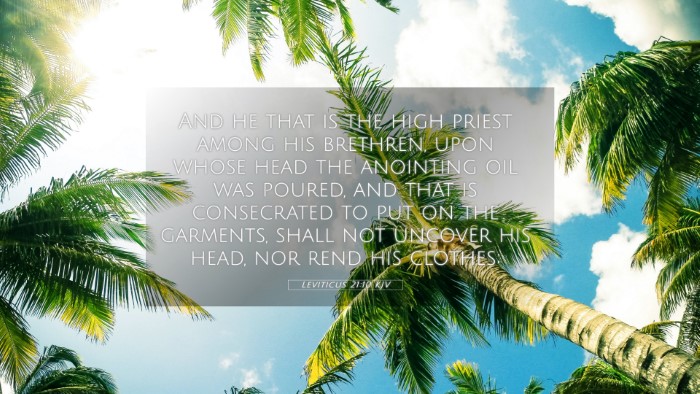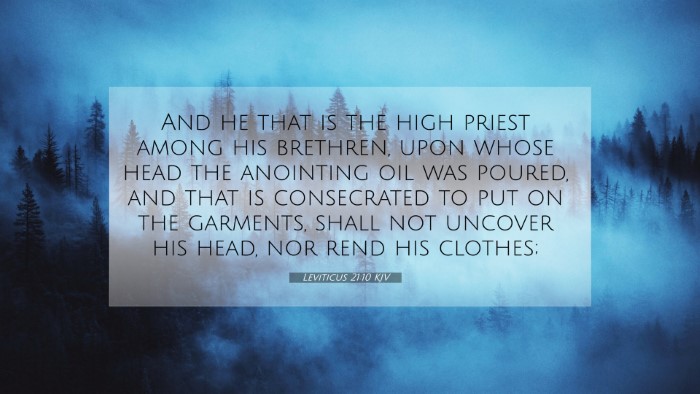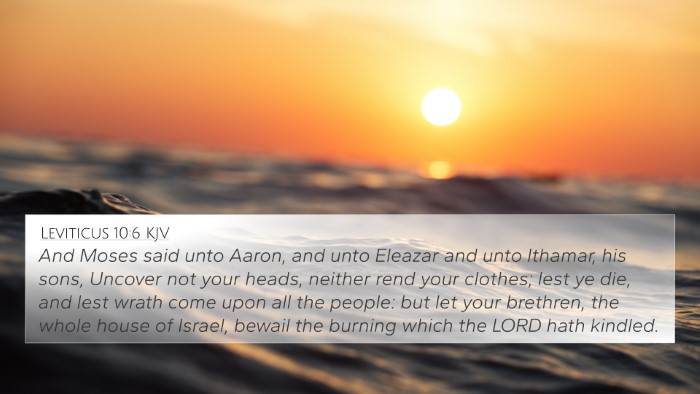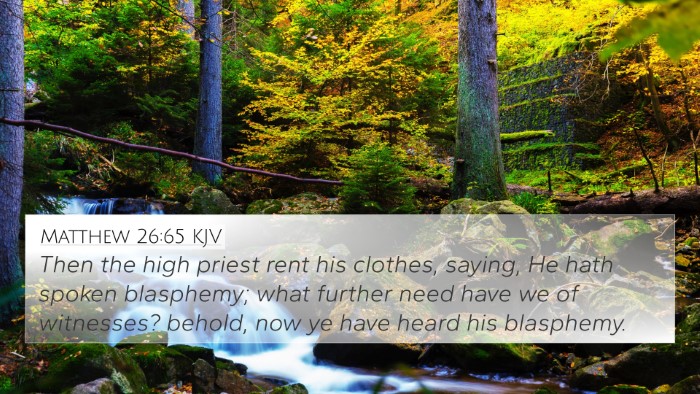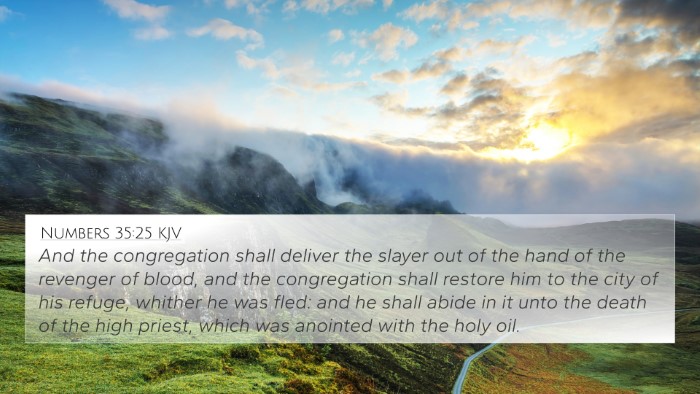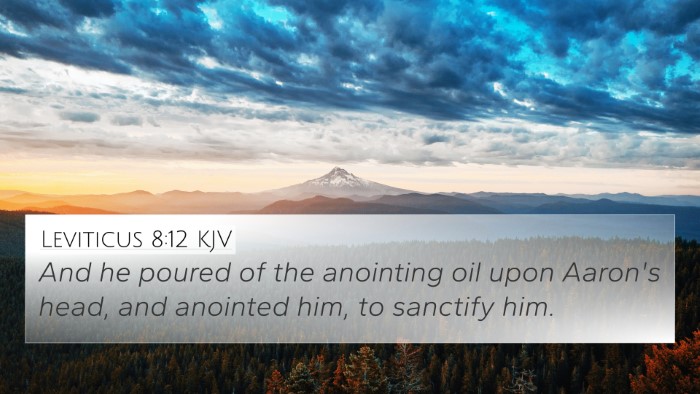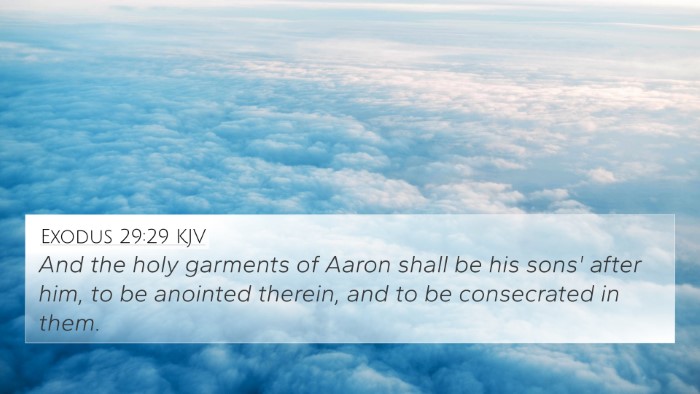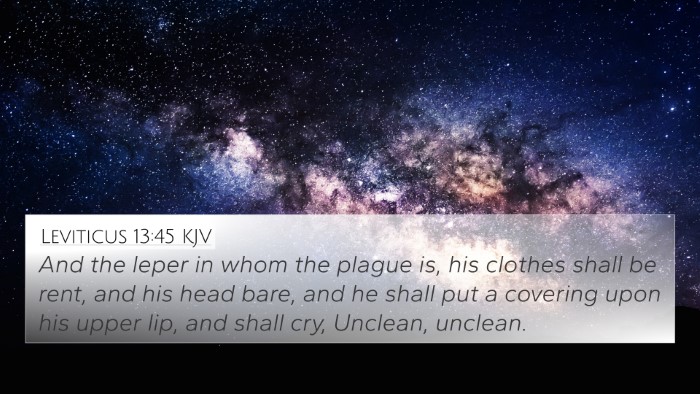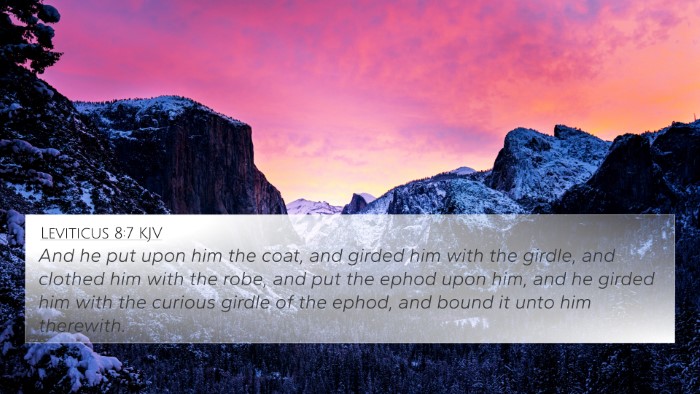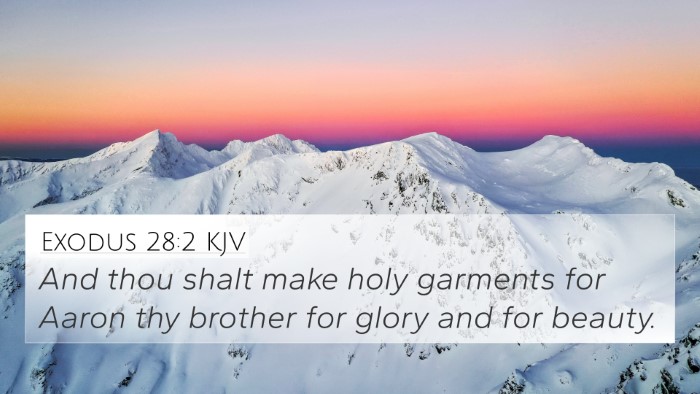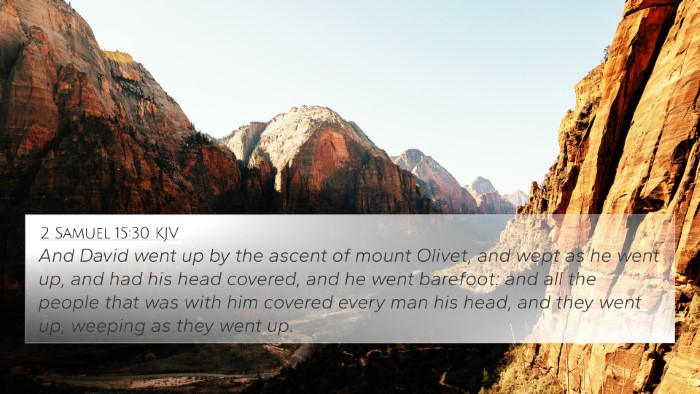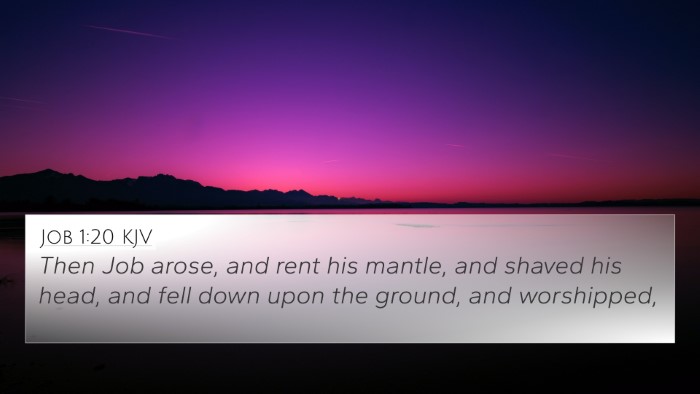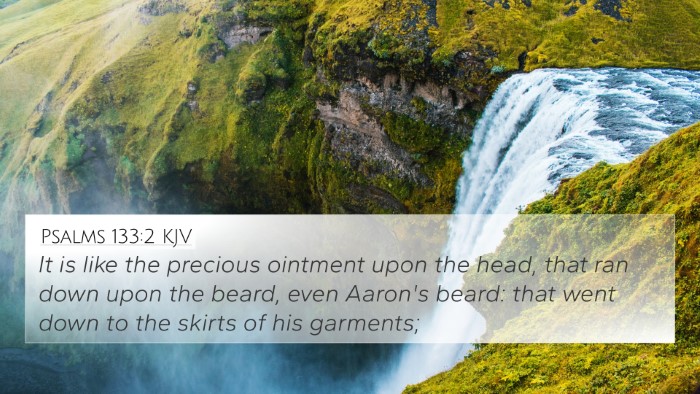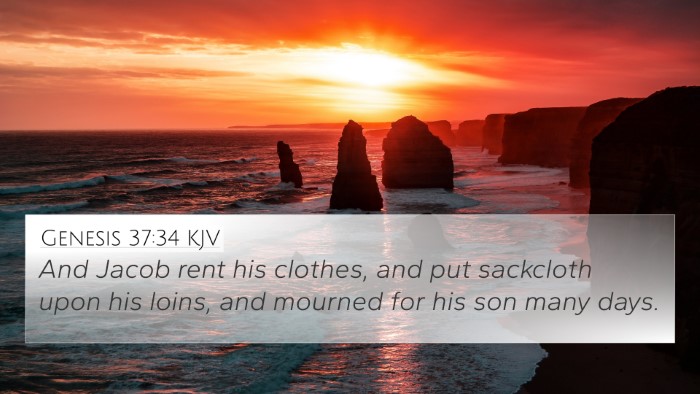Understanding Leviticus 21:10
Bible Verse: Leviticus 21:10 - "And the high priest, among his brethren, upon whose head the anointing oil was poured, and that is consecrated to put on the garments, shall not uncover his head, nor rend his clothes."
Summary of Insights
This verse highlights specific regulations concerning the high priest in ancient Israel, emphasizing the sacred nature of his role and attire. The commentary focuses on the significance of the high priest’s consecration, the symbolism of his garments, and the importance of maintaining dignity in his position.
Main Themes
- Consecration: The high priest was specially anointed and set apart, indicating a divinely appointed role.
- Sacred Garments: The garments worn by the high priest were not just ceremonial but embodied his unique authority and responsibility before God and the people.
- Dignity and Conduct: The injunction against uncovering his head or tearing his clothes symbolizes the need for maintaining dignity, especially in times of grief.
Connections Between Bible Verses
Leviticus 21:10 has significant connections to various Bible verses, enhancing our understanding through comparative biblical verse analysis. Below are some cross-references:
- Exodus 29:7-9: Discusses the anointing of Aaron, establishing the significance of the high priest's consecration.
- Leviticus 16:32-34: Focuses on the role of the high priest during the Day of Atonement, underscoring his responsibilities in worship and intercession.
- Leviticus 10:6-7: Details the context in which priests were expected to uphold sanctity even in mourning.
- Ezekiel 44:15-16: Refers to the future priesthood and emphasizes the high priest’s sacred duties and attire.
- Hebrews 5:1: Connects the role of high priest in the Old Testament with Christ's role in the New Testament, identifying similarities in priestly duties.
- 1 Peter 2:9: Points to the priesthood of all believers, illustrating their call to holiness and conduct.
- Malachi 2:7: Highlights that priests are to be messengers of the Lord, reinforcing their role in teaching and maintaining covenant faithfulness.
Thematic Bible Verse Connections
Understanding Leviticus 21:10 requires looking at broader themes within the Bible:
- Holiness: Reflects on the concept of holiness in priestly ministry (1 Peter 1:15-16).
- Leadership in Worship: Discusses the responsibilities of spiritual leadership (James 3:1).
- Grief and Mourning: Acknowledges appropriate responses to loss in leadership (John 11:35).
- Divine Anointing: Explores the significance of anointing in biblical history (1 Samuel 16:13).
Tools for Bible Cross-Referencing
Engaging with biblical texts requires tools for effective cross-referencing:
- Bible Concordance: A vital resource for locating verses based on keywords.
- Cross-Reference Bible Study: Techniques for drawing connections between verses and themes.
- Bible Reference Resources: Include study Bibles that provide commentary and context.
- Comprehensive Cross-Reference Materials: Benefit through books or online databases dedicated to biblical studies.
Importance of Inter-Biblical Dialogue
Leviticus 21:10 serves as a focal point for exploring the link between Old and New Testament priestly roles. Identifying connections between the high priest's role and Christ’s ministry provides profound insights into the purpose of the Old Law in relation to New Testament fulfilment.
Final Thoughts
Leviticus 21:10 teaches the significance of the high priest’s role, reflecting on principles of holiness, dignity, and the sanctity of leadership in worship. Through inter-Biblical dialogue and the identified connections, believers can enrich their understanding of the scriptural narrative and apply its timeless truths in their lives.
